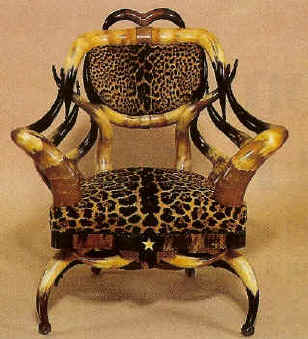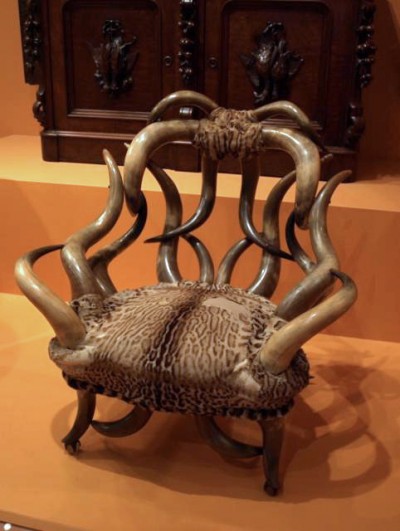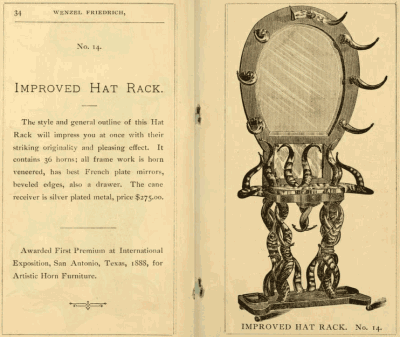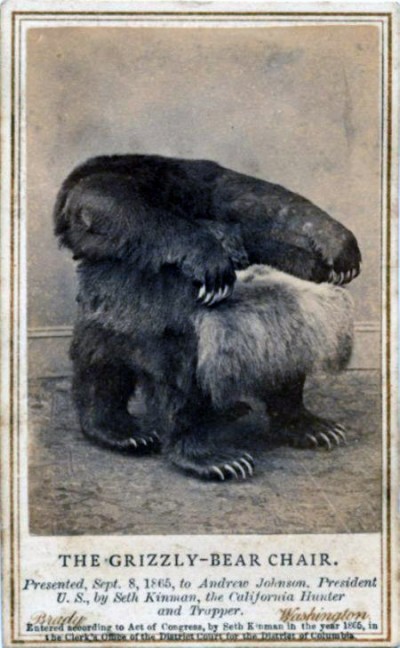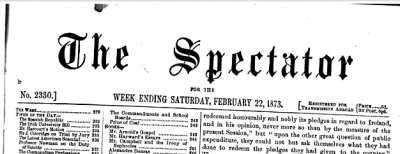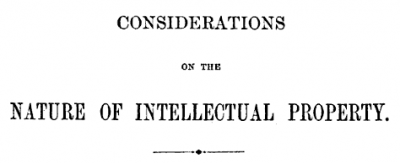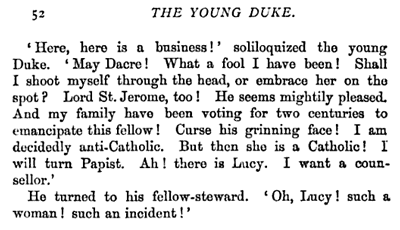
Yesterday I shared a bit about the debate raging in the 1870s Congress about whether the federal government had the ability to oversee trademarks. (It did, then it didn’t, then it kind of did, then, eventually, it totally did.)
Another major intellectual property debate of the nineteenth century was regarding foreign copyright laws and treaties. It was common in that time for British books to be reprinted in America, and American books to be reprinted in Britain, without copyright authorization — because there was no international copyright treaty allowing for the enforcement of one nation’s copyright on another’s soil.
Writers and publishers argued (probably correctly) that such unauthorized editions wrongfully deprived authors of income; opponents of stricter regulation argued that imposing copyright protections was in essence a tax on books, since publishers would then have to pay for the rights, and the consequently greater expense of books would suppress the free flow of information within the culture.
As both an author who would like to be paid for my work and someone generally in favor of the free flow of information, this is a fascinating debate to examine. The editor of the North American Review, John G. Palfrey, wrote an 1842 editorial in favor of an Anglo-American copyright treaty:
But, ‘if the publisher has to pay for copyrights, he will have to charge his books higher. The consequence will be, he will sell fewer copies; and so he and the public will both suffer; he, because he makes smaller profits; the public, because they get less instruction’. We are not so sure of that. A publisher will give no more for a copyright that he can afford to give and still do a good business.
[…] Again; it is for the interest of the English author to afford his works to us at a price which will admit of their wide circulation, because, as things now are, his reputation in this country — extended of course with the facility of procuring his works — reacts potently upon his fame, and so upon his fortune, at home.
[…] He must be too great a blockhead to write a salable book, who cannot see, that, by affording it at such a price that all who are so inclined may read, he is magnifying his name, and bringing future contributions to his counter. The more people there are, who, having read and liked one of his books, shall be disposed to buy the next, and recommend both to their neighbours, and sound his praises abroad, the more famous and courted and cheerful will he live, and likewise the richer will he die. [Citation]
I have emphasized the section that strikes a chord with me as an internet person of the modern age. Mr. Palfrey has basically just explained the business model of online comics, in 1842.
But perhaps sensing that in arguing the benefits of wider distribution of works, he is passively making the case for a lack of copyright controls, Mr. Palfrey goes on to rail against a lack of quality control in unauthorized editions, and finally invokes the moral sense of the reader:
Supposing it were otherwise — supposing that he did pay something additional for the author’s use — we insist, that those who pretend that this would be felt as a discouragement and hardship by the American reading public, show a much better acquaintance with their own impulses than with those of the people they are maligning.
We have no notion of human nature — of just and generous human nature, at least, which we hold the American to be — if the reader, who, bending over the instructive or affecting page, holds friendly and useful communion with the author’s mind, finds his pleasure enhanced by the reflection of its being obtained in fraud and defiance of the author’s right…
Then it gets dark:
We insist, that it is a mere unfounded and offensive libel to say, that of the hundreds of thousands, the millions, who on this side of the water have found so much of the charm of their lives in the writings of [Ivanhoe author Sir Walter Scott, who died in poverty in 1832], there is any number deserving to be counted, who have satisfaction in the remembrance of having contributed nothing to keep that great heart from breaking.
Had American laws been but as honest as American feelings — had very much less than what was there due from us been rendered — one of the most melancholy chapters in literary history would not have been written… The wizard harp of the North might still — who knows? — have been charming mankind with its else inexhaustible enchantments.
As it was, the creator of those worlds of delight struggled with desperate and agonized bravery, and died. We Americans helped ourselves to the fruit of his mighty toils, and extolled it largely, and, being mindful to have it at the cheapest, we let him have his struggle to himself, and we let him die.
It were better we had dealt honestly by him. We were not the richer for our foul dealing, while he lived, and could work for us; and we are the poorer now… [Citation]
A common contemporary fallacy in intellectual-property discussions is the assumption that every “pirate” usage is a lost sale. In other words, if 10,000 people download a song for free, that equates to 10,000 lost sales. If those 10,000 people had instead each paid 99¢ for the song, the seller would have grossed $9,900 instead of the presumed $0. In the same vein, if those 10,000 people had each mailed me a crisp ten-dollar bill, I’d have $100,000, so now I’m mad. And of course, if American copyright law had allowed publishers to license the foreign rights to print an authorized copy of Ivanhoe, Sir Walter Scott would be alive today.
YOU DID THIS. YOU KILLED SIR WALTER SCOTT.

(By the way, here are all of Sir Walter Scott’s books available to read for free, their copyright having expired over a century ago.)
Recently, proponents of SOPA/PIPA claimed that piracy was costing the U.S. economy “between $200 and $250 billion per year, and is responsible for the loss of 750,000 American jobs.” As Freakonomics points out, 750,000 jobs is twice the number of those employed in the entire motion picture industry.
These numbers are invented from whole cloth. If an airtight system of intellectual property protection existed, would the entertainment industry be $200 billion richer? If all intellectual property protections disappeared tomorrow, would the industry be $200 billion poorer? Nobody can say, because this reckoning totally ignores two massively relevant factors: quality and ease of consumption. What can be guessed at is that the fewer barriers there are to legitimate consumption, the less piracy will be an issue.
Mr. Palfrey is right — most people prefer to get their media through legitimate means, when those options are available to them. When they are not, piracy is the inevitable result.
(EDIT: I don’t know if the word “most” can be supported with statistics. But I do think it is safe to say that even if many people obtain media illegitimately, as long as it is made easy for enough other people do the right thing, things can still work out.)
Now, it may be that the commercial avenues for legitimate consumption — i.e. everybody streams their movies through a paid Netflix subscription — simply do not add up to enough revenue to keep the producers in business.
Maybe it’s time to stop spending $300 million to make a film, then. (I know, I know: “But what about the jobs?”)
NOW THEN. Was “illegitimate consumption = lost sale” an appropriate conclusion to draw in 1842, before digital copying made everything accessible to everyone? Were people buying bootleg copies of Ivanhoe instead of legit copies that would have enriched Sir Walter Scott? Without a copyright treaty in place, and thus no legit copies available, it does seem somewhat likely.
But if the price for a legit copy would have been higher than the bootleg, would as many copies have been sold? The Financier magazine, 1872, did not think so. It presents the following counterarguments against any proposed copyright treaty:
On the part of foreign authors…the publishing and reading of their books in our country, without paying them a toll, has been plausibly represented as dishonesty; and the national conscience has to some extent become affected with the apprehension lest there be a real injustice in our practice. But the pressing need of our people, indeed of our institutions themselves, for the very widest attainable diffusion of knowledge, has hitherto availed to prevent the serious consideration of the measure by our statesmen.
[…] The constitution delegates to Congress certain defined powers, among them are the granting to authors, for a specific purpose, of a monopoly in their books. But the grant to foreigners of such a monopoly would not further the purpose in question, and was evidently not contemplated by the founders of our constitution, nor was the power to make such a grant intended to be delegated. Short of the supreme authority of the people of the United States, who made the constitution, and can re-fashion it at their will, there is no power, in this country which can give a copyright to foreigners.
But we all know in this country that the people in the end will do what is just; and that neither legal difficulties nor constitutional defects will stop them long. If the want of a copyright for British authors is as much a wrong as slavery, as many of its advocates assert, then the power to abolish this wrong also will be found. If it is necessary for this purpose to amend the constitution, then the constitution will be changed. The real question is not, Who now has the power to grant copyright to foreigners? but Whether it is just and desirable to grant copyright to them…
So far, “We can’t do it — we don’t have power to make laws pertaining to foreign entities. But even if we could, here’s why we shouldn’t…”
(Aside: I get the distinct impression that the comparison to slavery was that era’s Godwin’s law, or the inevitable comparison to Hitler. “Oh, you think that copyright laws need reform? Is it a problem you’re concerned about? WELL, SO WAS SLAVERY. IS IT AS IMPORTANT AS SLAVERY? DO WE NEED ANOTHER CONSTITUTIONAL AMENDMENT, SMART GUY?”)
They argue in favor of the general theory that a book is always and universally the property of the man who writes it; that a reproduction of it without his consent is piracy; and that, therefore, the law ought to “protect his right,” whether he be a native or a foreigner… But when this high-sounding piece of political morals is examined, it vanishes.
[…] It means that, on the ground of abstract justice and eternal right, every author has a complete and lasting right of property in all his literary productions; and that the denial or abridgment of this right by the law of any country is a defiance of the higher law of equity. But probably no man in his senses would take such ground as this. There is not a government in the world that gives to authors a perpetual or an unconditional monopoly in the sale of his own books. If our country did so, the works of every great English writer, from Chaucer to Tennyson, would be to-day an expensive luxury, in the hands only of the rich, and the general intelligence, which is now our boast, would never have existed.
[…] The truth is, that every monopoly is the creature of positive law. It becomes a right when the law confers it; it has absolutely no existence until then.
“If the general rights of authors are innate and natural, then copyright would never expire. We wouldn’t be able to legislate them. But since copyright does expire, it means it can be decided by fiat, meaning that there is no argument for the existence of a natural right.”
…At present, the British author has no right whatever to a monopoly under our laws; when the law shall grant him such monopoly, it will be a violation of law, and therefore wrong, to invade it. Meanwhile, the publication of his works here violates no law and attacks no right. There is no more “piracy” in reading his writings without asking his leave, than there is in reading those of Homer or Shakespeare without hunting up his heirs to thank them, or in making a journey in a steamboat without insisting on paying a tribute to the descendants of Robert Fulton. [Citation]
Aha! Here is where the argument goes off the rails. The writer of this editorial, in two consecutive sentences, conflates publication and reading.
The proponents of the copyright treaty argued that there is a greater profit to the author to be gained by wider publication of his work.
The opponents are arguing that no damage is done to the author by additional reading of the work.
I think these views are more or less compatible in the modern age. I do want as many people as possible to read my work — the additional eyeballs do me no harm. The worst that could happen is a higher web hosting bill. It is beneficial to have as many readers as possible, which Mr. Palfrey recognized in 1842.
But third parties — publishers — should not profit illegitimately from the creative work to which they do not hold the necessary right.
This is where the rubber of the “piracy” argument meets the road. Forget mythical or imaginary “lost revenue.” How many people earn real money today from the piracy of work not their own? From ad views on torrent sites, to bootleg DVDs in foreign swap meets, to the outright thievery of counterfeit ebooks: “Amazon is rife with fake authors selling erotica ripped word-for-word from stories posted on Literotica, a popular and free erotic fiction site… As recently as early January, ‘Robin Scott’ had 31 books in the Kindle store, and a down-and-dirty textual analysis revealed that each one was plagiarized.”
I believe counterfeiting, plagiarism, and trademark violations are offenses that should be punished however possible. That is illegitimate publication, and little different from selling stolen goods.
But illegitimate reading? I want you to read my work. I go to conventions and hand out flyers (which I paid to print) to beg you to read my work. As Cory Doctorow says, the threat is not piracy but obscurity.
So, in a world where piracy exists, my task as an author is to make the legitimate consumption of my work the path of least resistance.
Back to the arguments in The Financier:
…The effect of such a treaty, could it be constitutionally made, would be to make every book protected in England a monopoly here; to multiply the cost of all the most popular books, and, especially, of those by which children are educated; to retard the diffusion of knowledge, and limit the intelligence of the next generation, in order to enrich a handful of foreign publishers with taxes upon information and truth.
[…] The true and statesmanlike plan is to rid [knowledge] of all its burdens, and to make the diffusion of knowledge free. Rid books themselves, and all the materials, machinery and labor employed in making them, of every shred of taxation. Give the people untaxed knowledge, untaxed education, untaxed reading. Then will the trade in books in this country rapidly outstrip in growth the ambition of its most enterprising promoters, and “knowledge shall be increased.” Not more restrictions, not more burdens and impositions on science and the arts, but the freedom of the press is the cry of a people hungering for the truth in all its fullness.
INFORMATION WANTS TO BE FREE. NO COPYRIGHT LAWS PLZ

Wait, not so fast. Without copyright protection, aren’t we back to the problem that foreign publishers can sell books without paying royalties to the original author? We are, of course, writes Dr. S.D. Gross to an 1868 New York meeting of intellectual property advocates:
Foreign works, republished in the United States, [are] often sold for less than one-third the price of the native productions; without, in most cases, substantial benefit to their authors.
No one can doubt that this has been one of the great causes which have retarded the progress of American literature; and I have sometimes, in view of this important subject, regretted that we speak the same language as the people of Great Britain. With a language of our own we should have made much greater strides as a literary nation… [Letter from Dr. S.D. Gross]
And here’s yet another interesting twist. In this letter, Dr. Gross asserts that the flood of cheap British literature has had the effect to stunt the development of a distinctly American culture.
Is this a stretch? Well, Mr. Palfrey brought it up too:
A vigorous literature is always the congenial growth of a native soil… Down to the present time, we Americans are mostly under the tutelage of England. Novels are the class of books which as yet we provide least for ourselves, and depend for most on the mother country. They constitute a stock of reading of the utmost importance in its influence on the moral tastes and principles, and so on the political security of a nation. They are read very extensively; they are especial favorites of that period of life when the character is forming; and in the formation of character their exciting addresses to the imagination and feelings give them an exceeding power. The hero or heroine of the fictitious tale is to the young man or woman, for the time being, the perfection of humanity…
[…] But the hero or heroine of the English tales we read, is an idea different from what can be realized in a republican state…and one, which for our patriotism’s sake, as well as for the credit of our good judgment, we ought not to learn to love. It is unfortunate, that the imaginations of our young people should be excited by it, even if the effect should be no worse than to make them look upon our far preferable institutions of republican equality and freedom as comparatively a homely thing…
[…] It is unfortunate, that the merchant’s daughter and the farmer’s boy should get their heads too full of the Young Duke and May Dacre [characters in a novel by British earl and prime minister Benjamin Disraeli]…Works in a [republican, anti-monarchist] tone will go further than any parchment Bill of Rights to perpetuate our political blessings. They must be written in America; they can be produced nowhere else. And when rulers come a little to a sense of their own duty, they will take care to provide some encouragement for the production of such works…
[…] Readers cordially greet such works, but authors must live while they write them; and this they will have no security for doing, till legislators shall have made that easy provision, which depends on them, for the encouragement of a literature instinct with the spirit of republican virtue. [Citation]
No less than the furtherance of the American way of life depends upon this question of copyright! In this sense, lack of copyright oversight is like a reverse tariff, making foreign goods cheaper than domestic. And when those goods are the intellectual stimulation of a generation — well, just think of the children!
But is it a valid argument? Are authors so valuable to a national character that they are owed a living by society? More on this…IN THE FUTURE.
